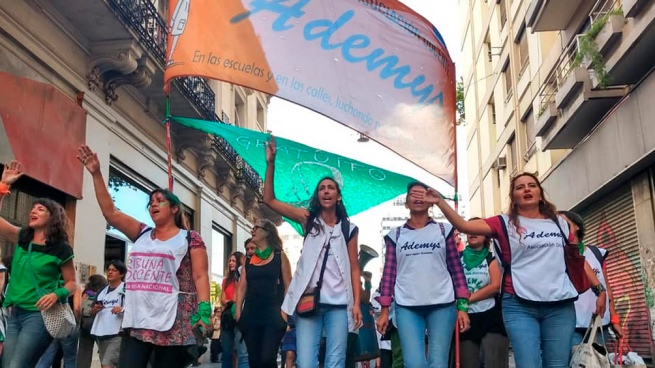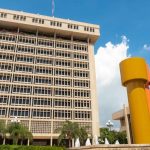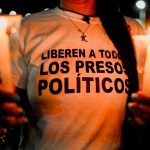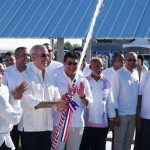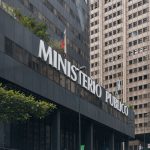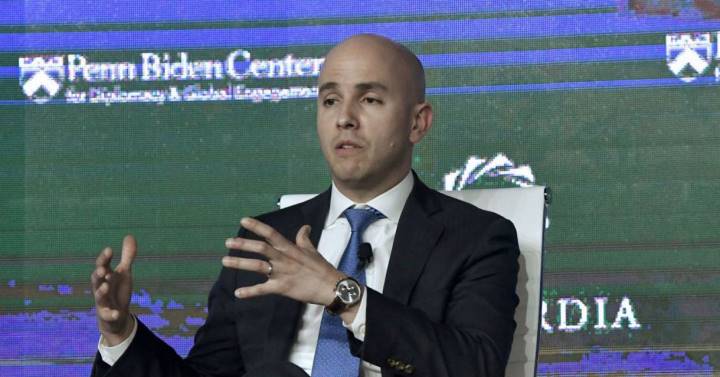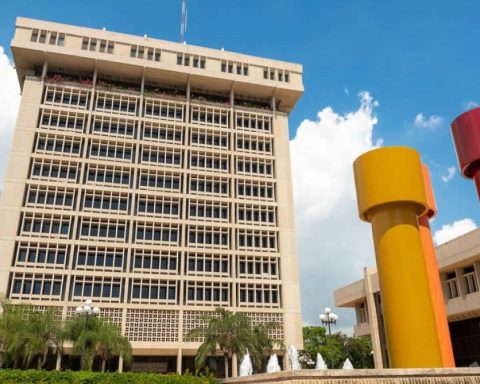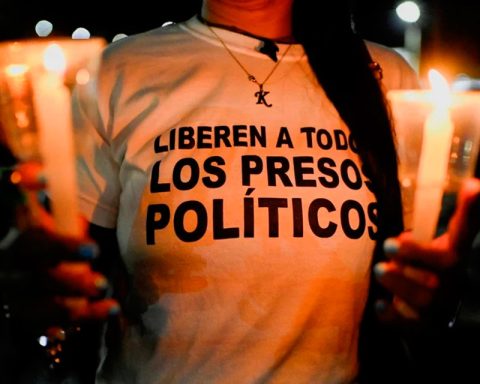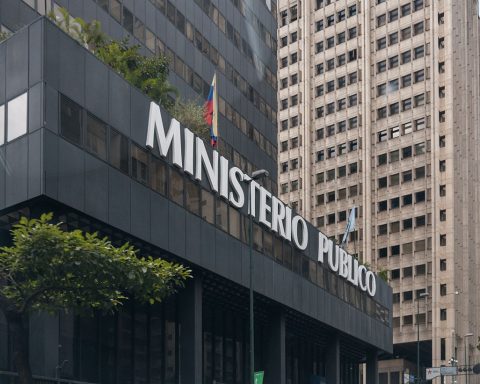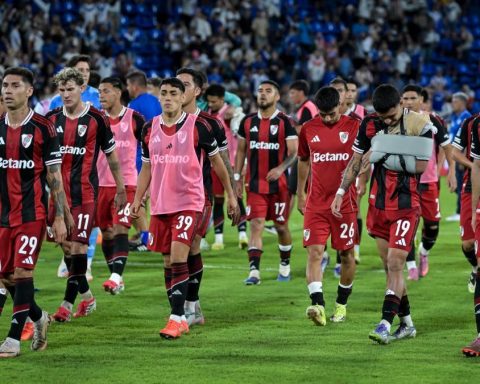The general secretary of the Association of Middle and Higher Education Teachers (Ademys), Mariana Scayolarejected the resolution of the City of Buenos Aires to prohibit the use of inclusive language in schools and stated that “it has no scientific or pedagogical argument or foundation.”
On June 9, the Government of the Autonomous City of Buenos Aires prohibited the use of inclusive language in its schools in official documents and in written curricular content, and presented it as a measure given the low results obtained in Language by students. porteños made by CABA after the pandemic.
“They say that it would be affecting the acquisition of language by girls and boys, and the truth is that there is no specialist who supports this, in fact, in recent days there have been statements by linguists, institutions and specialists who contradict it”Scayola told Télam Radio.
For the secretary, the Buenos Aires government “runs the ball” on the educational crisis.
“The pandemic has deepened many of the problems we already had. Today they say that it is inclusive language, yesterday it was the teachers, other times it is the unions, but never the hollowing out policies and budget shortages that have been falling in recent years” he explained.
Regarding the situation of the schools and the current educational level, Scayola argued that resources are needed to avoid the crisis.
“These tests, which are standardized, undoubtedly reflect what teachers see every day in schools.”
“Minister Soledad Acuña is the same one who did not guarantee equipment and connectivity in the richest city in the country, and who today is not guaranteeing educational psychologists, social workers or speech therapists for students who need support. Teachers are burdened with this situation alone,” concluded.
An opportunistic measure

The sociologist and feminist activist Dora Barrancos said this Monday that inclusive language “does not alter the grammar at all”, added does not understand how there are actors willing to “turn back the clock of history”, and described its prohibition in the City of Buenos Aires as “opportunistic”.
“Inclusive language does not alter grammar at all. It is language that is altered and conforms to principles of adequacy and non-adequacy, and then changes. Language is the closest thing to life,” Barrancos pointed out in a Radio interview on the program Mediodía 750.
In his statements, he explained that language “flows, changes, and is always political”, “inclusive language is a political desideratum (desire or aspiration) that has a minimal approximation to what is the scene and the apolitical nature of rights” , said.
“It is not very well understood how there are actors who want to delay the clock of history so much”, I consider.
Regarding the debate, he expressed that he does not believe that the “restrictive” actors of the City of Buenos Aires are not “in the context of significance that the kids are giving to language today.”
“I cannot think that they are on the margins of such an extraordinary flow that exists because, in reality, what is happening that is new is what the new generations bring,” he exclaimed.
On June 9, the Government of the Autonomous City of Buenos Aires prohibited its use in official documents in its schools and prohibited teachers from teaching curricular content written with inclusive language.
In Circular 4/2022, the Buenos Aires Ministry of Education, headed by Soledad Acuña, ordered teachers to carry out teaching activities and carry out institutional communications “in accordance with the rules of the Spanish language, its grammatical norms and official guidelines for his teaching.
Barracos described the measure as “harmful”.
“These caretakers of the language, for me, are in a falsified way. I cannot believe that there is a statute of truth and conviction. It has to do with something absolutely opportunistic,” he said.
Barrancos added that the desire “awakens from what is absent and prohibited” and that there will be an “extraordinary” incentive for those who did not use inclusive language before to now do so.
“I insist that, happily, there will be a normalized insubordination because it will be impossible to consecrate sanctions that, in any case, are a sad remedy for authoritarian aspects,” he concluded.
Suteba

The Unified Union of Education Workers of Buenos Aires (Suteba) rejected this Monday the resolution of the Ministry of Education of the Buenos Aires government that prohibits the use of inclusive language in City schools and stated that “it has to do with the authoritarian matrix of a government that cares more about focus groups than what happens to society.”
In this sense, the head of Suteba, Robert Baradel, told Télam that “this has to do with the authoritarian matrix of thought of a government that cares more about focus groups than what happens to society or how to expand rights.”
Last Friday, the Government of the Autonomous City of Buenos Aires prohibited its use in its schools in official documents and that teachers teach written curricular content with inclusive language through Circular 4/2022 of the Ministry of Education.
“They try to hide a debate about the educational situation in CABA. He raised it even (the radical deputy) Facundo Manes. They cut the educational budget. With all that has to do with the decision to propose this ban, “he added.
Suteba stated, in a statement, that this determination was made “using the results of recent reading comprehension tests as an argument”, and analyzed that “with this, they demonstrate the scarce reading -what a paradox- of the impact of the pandemic on children, girls, boys, adolescents and young people worldwide”.
“It would be worth asking if the absence of the State of CABA during the toughest stages of ASPO, which made pedagogical continuity impossible, had something to do with the difficulties that arise today,” they indicated from the union.
In this context, they stressed that “a city that calls itself ‘gayfriendly’, in which the ‘lunfardo’ was built, inhabited by migrants from different parts of the country and the world, today presents us with an act of prohibition as a mere punitive act that does not respect the legal framework, including the one cited in the resolution itself, ignoring that language is an instrument of transmission and construction of common meanings”.
“As in any other process of cultural transformation, the debates must be present so that the hegemonic discourse, a powerful mode of oppression and reproduction of inequality, is challenged,” they indicated.
Then, they pointed out that “the way we use language is never neutral”, and specified that “non-binary language is only a small part of the so-called inclusive language, which also includes linguistic, anti-capacity, anti-racist and anti-colonial strategies, among many others. others”.
“We stand in solidarity with the whole of Buenos Aires teaching that faces, once again, authoritarianism, unilateralism in the decisions that make teaching work and lack of respect for the diversities that inhabit schools,” they concluded.
